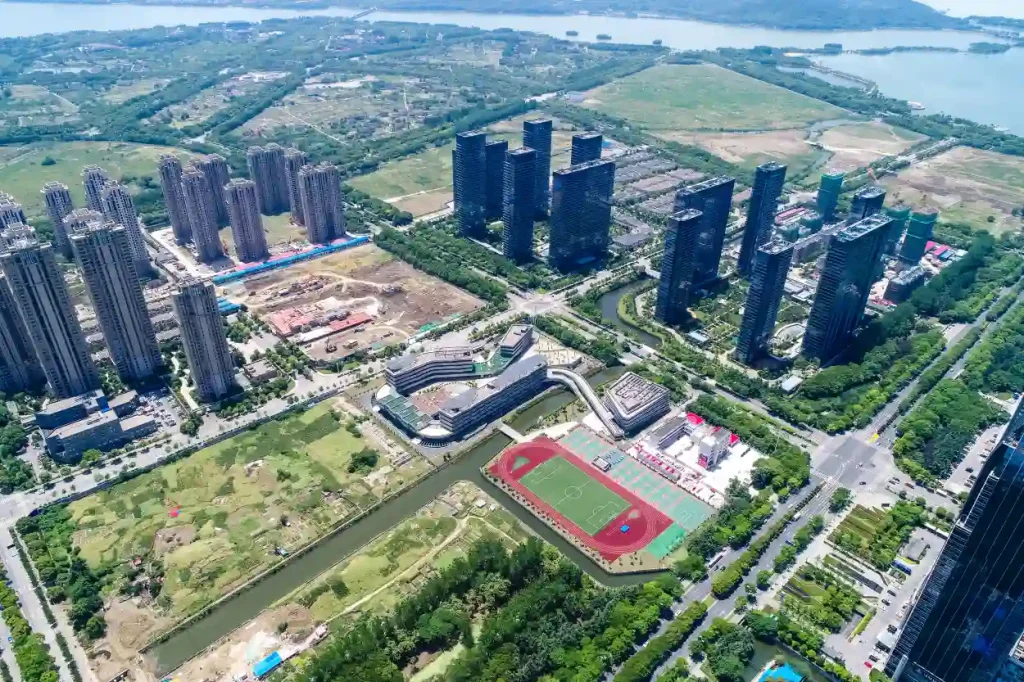
Zoning laws are a crucial factor when purchasing commercial property in Colorado. They influence what kind of business operations are allowed, how properties can be developed, and whether a particular commercial venture will be feasible in a given area. This thorough guide will assist you navigate the complex web of zoning regulations so that you can confidently invest in commercial property in Colorado.
Why Zoning Matters for Commercial Property in Colorado
Zoning laws are essential for maintaining orderly development and protecting public interests. They determine what kinds of businesses can operate, where structures can be built, and how they should be developed. Here’s why zoning is particularly significant when buying commercial property in Colorado:
Permitted Business Operations
Zoning classifications control which business activities are allowed in each district. For instance, industrial activities may be restricted in residential or mixed-use zones, while retail or office spaces may be welcomed. Knowing these classifications is crucial to ensure that your intended commercial activities align with the zoning laws for that area.
Property Development and Modifications
Zoning regulations often dictate building heights, lot sizes, setbacks, and overall development density. If you’re considering new construction or renovations to an existing building, make sure your plans comply with the zoning restrictions.
Impact on Surrounding Communities
Zoning laws guarantee that commercial activities have a positive impact on neighboring communities. For instance, zoning rules might limit businesses that generate heavy traffic or noise in certain areas. Understanding these regulations helps to avoid conflicts with local residents.
Environmental Protection
Colorado has strict environmental laws that often influence zoning classifications. Protecting water resources, wildlife habitats, and air quality is essential, particularly for properties near sensitive ecological zones.
Special Designations
In Colorado, some areas might have special zoning designations that bring additional restrictions or benefits. Historic districts often have regulations to preserve architectural integrity, while commercial improvement districts can offer incentives.
Changing Trends and Rezoning
Comprehensive plans and future zoning updates can significantly impact a property’s profitability. Stay informed about local development trends that might lead to rezoning, which could either increase or limit potential uses.
How to Identify Zoning Laws When Buying Commercial Property in Colorado

Understanding zoning laws is crucial before investing in commercial property in Colorado. Properly identifying zoning ensures that your business activities align with local regulations. Here’s how to identify and interpret zoning laws effectively:
1. Research Local Zoning Codes and Ordinances
Each municipality and county in Colorado has distinct zoning regulations. Begin by thoroughly researching the zoning codes specific to your target area. You can usually find these documents on city or county websites or at local planning offices. Consider collaborating with a commercial real estate broker in Colorado familiar with the area, as they can often navigate these resources with ease.
2. Examine Zoning Maps
Zoning maps visually outline where various districts are located, detailing classifications like commercial, industrial, residential, mixed-use, and special districts. Match your desired property’s location with these maps to identify the relevant zoning district.
3. Interpret Zoning Classifications and Regulations
Each zoning classification contains specific rules for permitted uses, building heights, setbacks, parking, and density. Study these carefully to understand what is or isn’t allowed. For instance, a C-1 (Commercial) zone may allow office spaces but prohibit manufacturing.
4. Contact the Local Planning Department
Local planning departments enforce zoning regulations and can clarify the zoning specifics of your commercial property in Colorado. They can verify the property’s zoning classification, provide guidance on special permits or variances, and explain the approval process.
Involving a real estate broker with experience in your target area can further streamline communication and ensure you get the most out of your interactions with the planning department.
5. Consult Zoning Experts
Zoning experts, such as land-use attorneys and consultants, specialize in navigating these complex regulations. They can help with rezoning requests, variances, and the development of properties under restrictive zoning. A commercial real estate broker with a strong network of such professionals can connect you with the right expert for your specific needs.
6. Review Existing Permits and Rights
Some properties have existing permits or non-conforming use rights, especially if they were used before new zoning rules took effect. Carefully review these documents to determine how they may impact your property’s current and future usage. A real estate broker can lead you through this process and advise on the potential benefits or limitations associated with existing permits and rights.
7. Assess Development Standards and Future Trends
Development standards often include height restrictions, density limits, architectural guidelines, and other rules that affect property usage. Comprehensive plans can reveal future zoning changes that may impact your commercial venture.
Frequently Asked Questions
What is the difference between a zoning map and a zoning ordinance?
A zoning map is a visual guide showing how a city or county divides land into different districts like commercial, residential, and industrial. It helps people see where these zones are located. A zoning ordinance is a document that explains the rules for each zone, such as what building types can be constructed, how tall they can be, and what activities are allowed.
Can a commercial property have multiple zoning designations?
Yes, a commercial property in Colorado can have multiple zoning designations. This can happen if the property is located on the border between two different zones or if it covers a large area that includes more than one zoning category. For instance, part of a property might be zoned for offices while another part is zoned for retail.
How does zoning impact the value of a commercial property?
Zoning affects the value of a commercial property location because it determines what kind of businesses or developments can operate there. Properties zoned for high-traffic activities like restaurants and shops often have a higher value because they attract more customers. In contrast, properties zoned for less flexible uses might be less valuable because they offer fewer opportunities.
Conclusion
Investing in commercial property in Colorado can yield excellent returns, but only if you thoroughly understand the zoning laws. Enlisting expert help can make all the difference. A commercial real estate broker has experience navigating Colorado’s real estate market and will help you identify and purchase commercial properties that align perfectly with your business goals.
Are you ready to find the ideal commercial property in Colorado while ensuring compliance with local zoning laws? Reach out to 3D Real Estate for expert advice and a seamless buying experience. Our team can help you navigate zoning laws and regulations to make strategic real estate investments. Contact us today!




